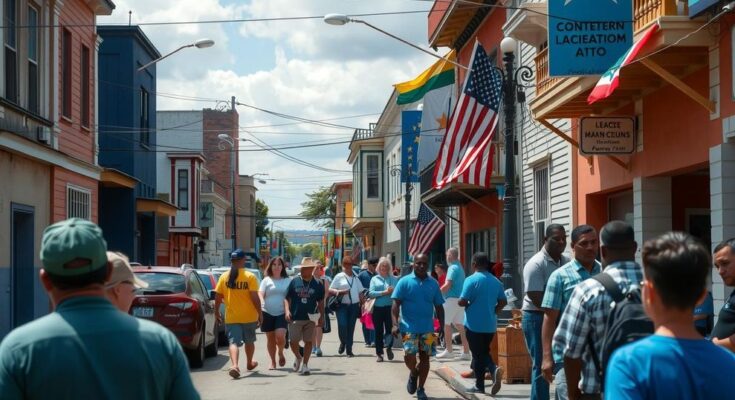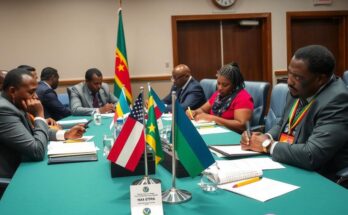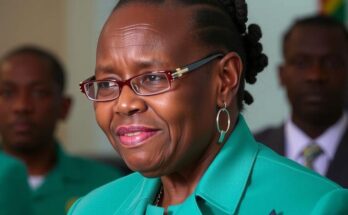As Election Day approaches in Puerto Rico, third-party candidate Juan Dalmau has achieved historic poll standings, signaling discontent with traditional political affiliations. With significant support from the youth demographic, Dalmau’s campaign is juxtaposed against incumbent Jenniffer González of the New Progressive Party. Voter disillusionment, especially concerning corruption and energy crises, may shift the political landscape, while a referendum on status poses further questions about Puerto Rico’s governance.
As Puerto Rico approaches its upcoming election day on November 5, 2024, the political landscape is witnessing a significant shift. For the first time, a third-party candidate, Juan Dalmau, representing the Puerto Rico’s Independence Party and the Citizen Victory Movement, has advanced in the polls, capturing a strong second position against incumbent candidate Jenniffer González of the New Progressive Party. Analysis suggests that this election marks a historic turning point for Puerto Rican politics, influenced by a younger generation increasingly dissatisfied with the traditional power structures and prevalent issues such as corruption, inadequate public services, and economic struggles. Recent polling data indicate Dalmau is closing in on González, with support levels at 29% to her 31%, a dramatic increase from previous months. Political analysts attribute this shift to the electorate’s growing disillusionment with the established parties that have governed Puerto Rico for decades. With widespread adverse effects attributed to past mismanagement, particularly in the wake of hurricanes and a hefty public debt exceeding $70 billion, voters are expressing a desire for transformative change. Juan Dalmau has promised to radically alter the current energy contracts and prioritizes addressing societal issues like housing affordability and healthcare improvements. As evident in recent voter trends, younger voters appear to favor Dalmau over the older demographic that largely supports González’s pro-statehood stance. Dalmau has also gained visibility and support, notably from popular culture figures like Bad Bunny, who criticized traditional political parties in a public campaign. In conjunction with the gubernatorial race, voters will also participate in a referendum regarding Puerto Rico’s political status, which has experienced persistent inertia in Congress despite multiple votes. This election, therefore, embodies a critical moment for Puerto Rico, as citizens seek to redefine their political future and provoke substantial reforms to their governance.
In the context of Puerto Rican politics, the island has been dominated by two main parties—the New Progressive Party, advocating for statehood, and the Popular Democratic Party, which endorses maintaining the current political status. For decades, these parties have consistently garnered over 90% of the electoral votes. However, the establishment of a federal control board in 2016, due to an overwhelming public debt and governance issues, laid the groundwork for a third-party emergence. The economic distress caused by this debt, exacerbated by natural disasters like Hurricane Maria and ongoing power outages, has led to increased voter discontent. Recent local elections have also illustrated a growing trend of voter apathy, yet the rise of candidates like Juan Dalmau suggests a potential reevaluation of political allegiance among younger voters who are more inclined to support third-party options.
The upcoming election in Puerto Rico is pivotal, as it could signify a departure from traditional political strongholds and usher in a new political paradigm. The rise of Juan Dalmau as a serious contender reflects a shift in voter priorities, as pressing issues such as corruption and infrastructure failures demand immediate attention. Furthermore, the simultaneous referendum on Puerto Rico’s status indicates an ongoing struggle for self-determination and governance reform. Thus, the election not only holds significant implications for future leadership but also underscores the collective sentiment for change among the Puerto Rican populace.
Original Source: apnews.com




